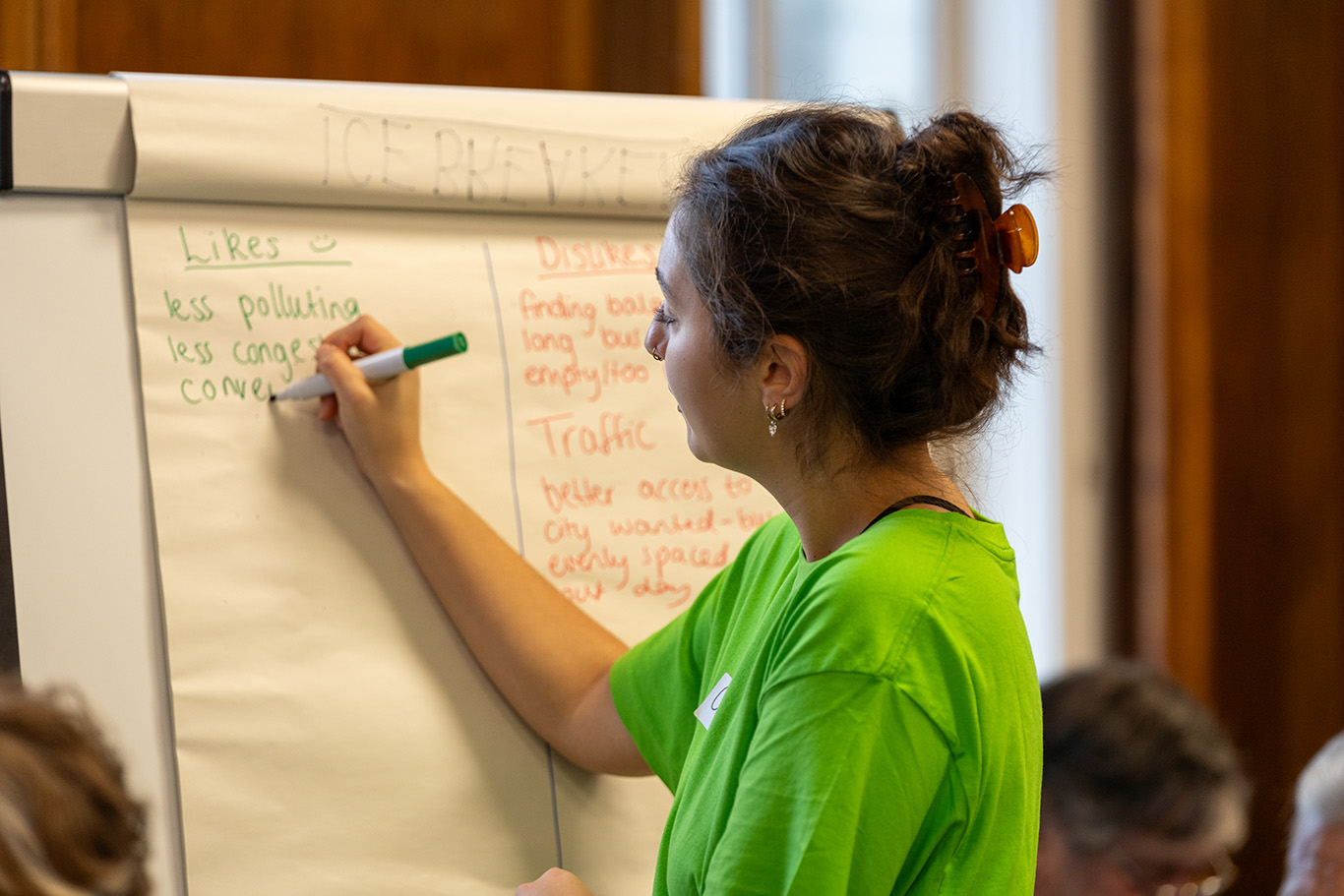The assembly’s recommendations - Final Report
At the end of 2023, Southampton City Council ran its first ever citizens’ assembly. It focussed on climate change and transport. It was run in partnership with the University of Southampton, University of Oxford and public participation charity Involve
The assembly brought together a group of residents from across the city and asked them to make considered recommendations on how the council and others should tackle climate change. The results are available in our final report.
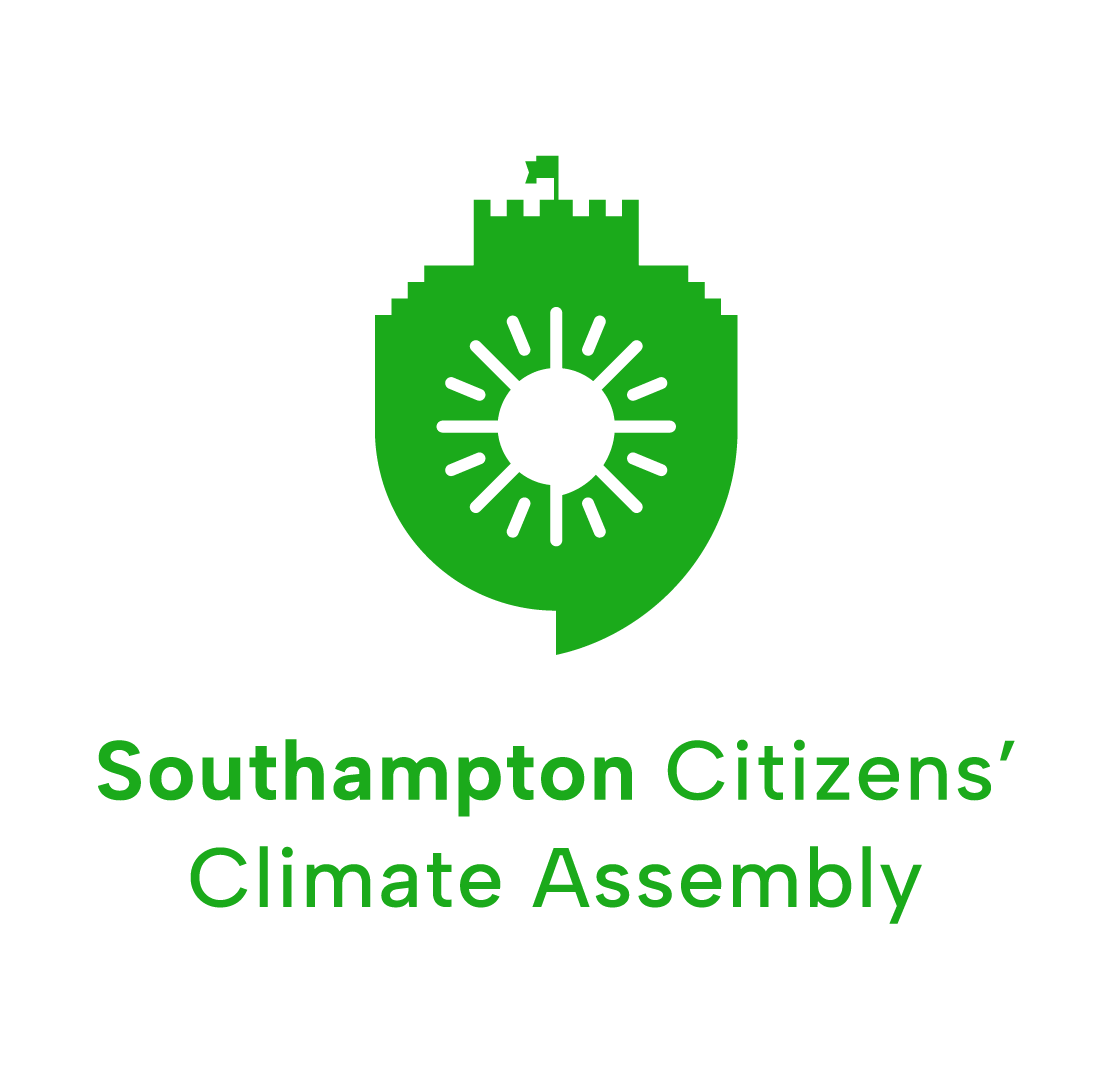
What is a citizens’ assembly?
Citizens’ assemblies have become the leading democratic innovation worldwide in recent years. They bring an inclusive and diverse set of ordinary citizens together, engage them in informed, and safe deliberation, and provide recommendations to decision-makers on controversial topics. In recent years leading governments around the world, the UK parliament and UK devolved and local governments have been increasingly using citizens' assemblies in their work. These assemblies have enabled policymakers to better understand people's informed and considered preferences on complex and controversial issues.
Responding to a high demand for a citizens’ assembly in Southampton, Southampton City Council together with the University of Southampton, the University of Oxford and the charity Involve delivered a wide, democratic, and cutting-edge citizen engagement programme on climate during in 2023, in the form of a Citizens’ Climate Assembly that was well anchored among residents and civil society. There has been strong commitment from both Leader Cllr Satvir Kaur during the process and her successor Cllr Lorna Fielker, and wider political leadership and administrative leads at the city council, and demand also came from the recently formed Climate Commission of leading business and third sector bodies.
You can read more about Southampton Citizens’ Climate assembly and its processes in our FAQ.
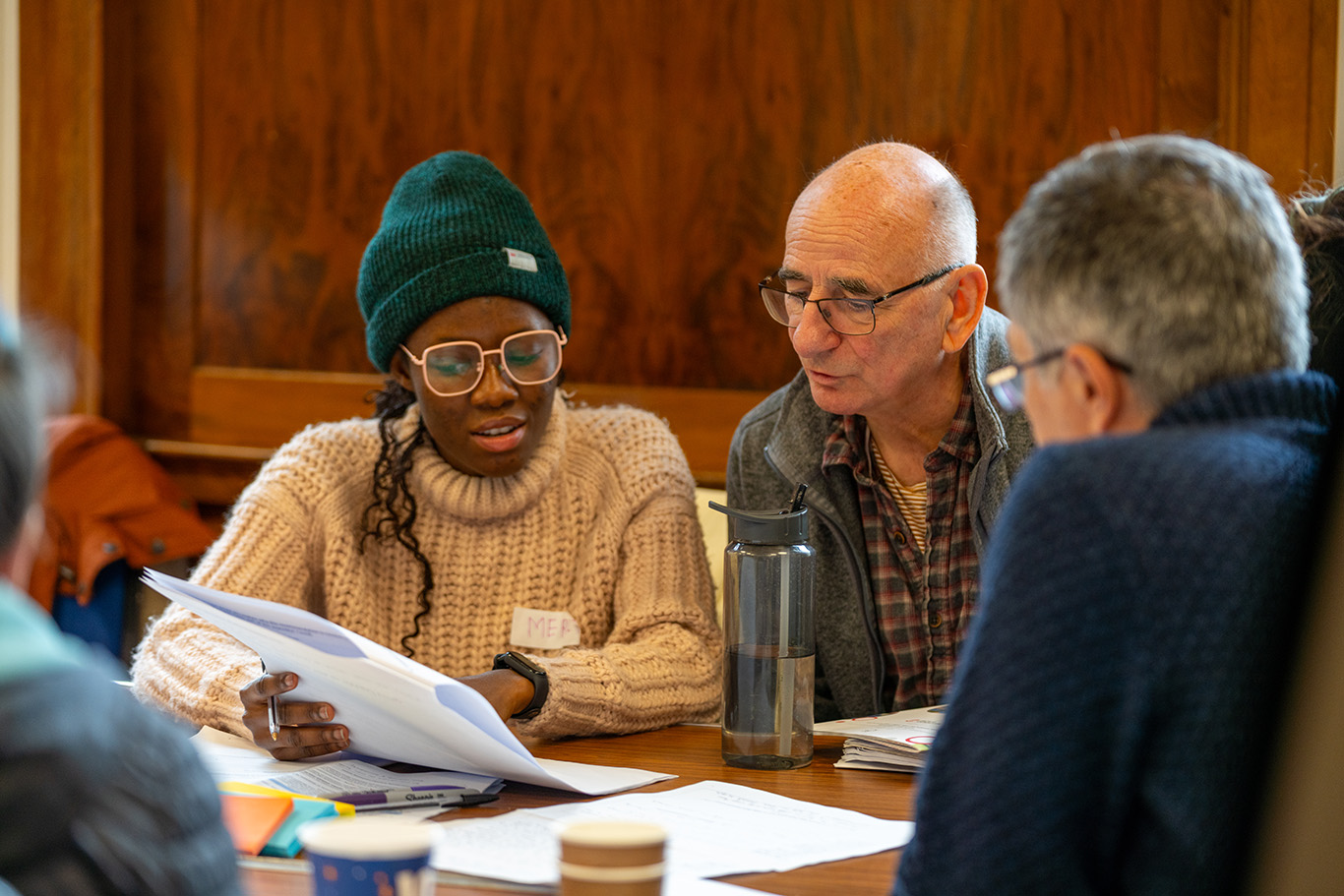
Southampton Citizens’ Climate Assembly
The City of Southampton took a long-term and slow-burn approach to a citizens’ assembly. Rather than focusing solely on a short-term assembly involving a handful of citizens, the project seeks to expand the influence and footprint of an assembly well beyond a handful of formal learning and decision meetings. This new model encourages many kinds of conversation from people from all walks of life embedding the assembly and its message within the fabric of the city itself. Assembly members were supported to produce outputs to be shared across the city. This was done in preparation for citizens to contribute to the City Council’s Climate and Green policies.
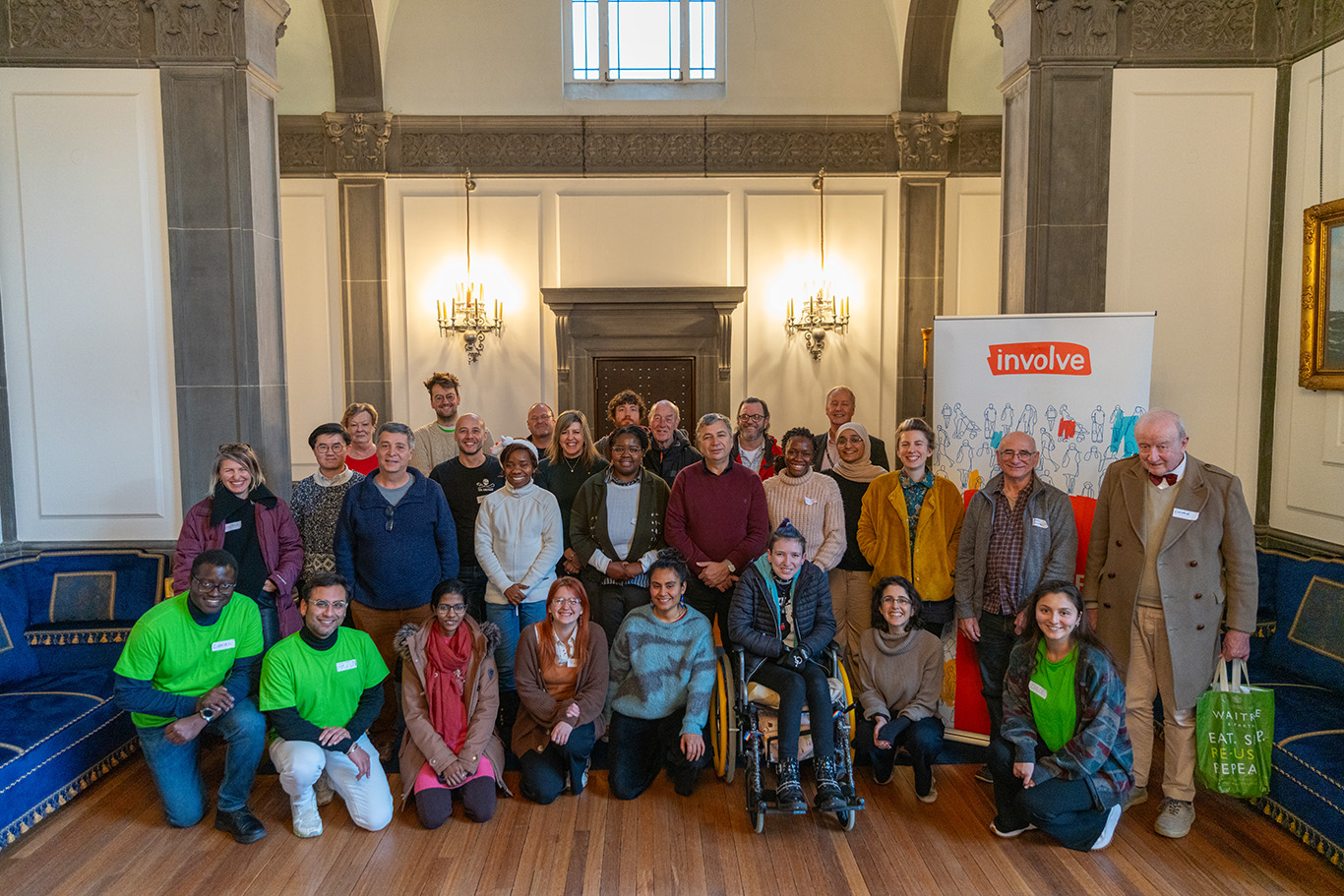
The extended timeframe, and slower pace, seek to sustain Southampton’s citizens’ climate assembly as a contribution to local discussions outside the regular political timeline. The project itself is not led by any political parties. Instead, it emerges from a partnership within the City between the University of Southampton led by the Rebooting Democracy Research Group, the University of Oxford, the charity Involve, and the City’ Council’s Leadership and civil servants. Keeping the assembly on a non-partisan footing is an essential balancing act. Assembly members were drawn from across Southampton. The city’s wards were used as focal points for discussions and meetings to present the assembly and secure support from across civil society. There is precedent for this kind of engagement. Southampton is a city that only recently prior to the assembly saw a groundswell of support and cross-party engagement for its bid to be the UK’s City of Culture - there is clear appetite here for the role of the population in charting the city’s course.
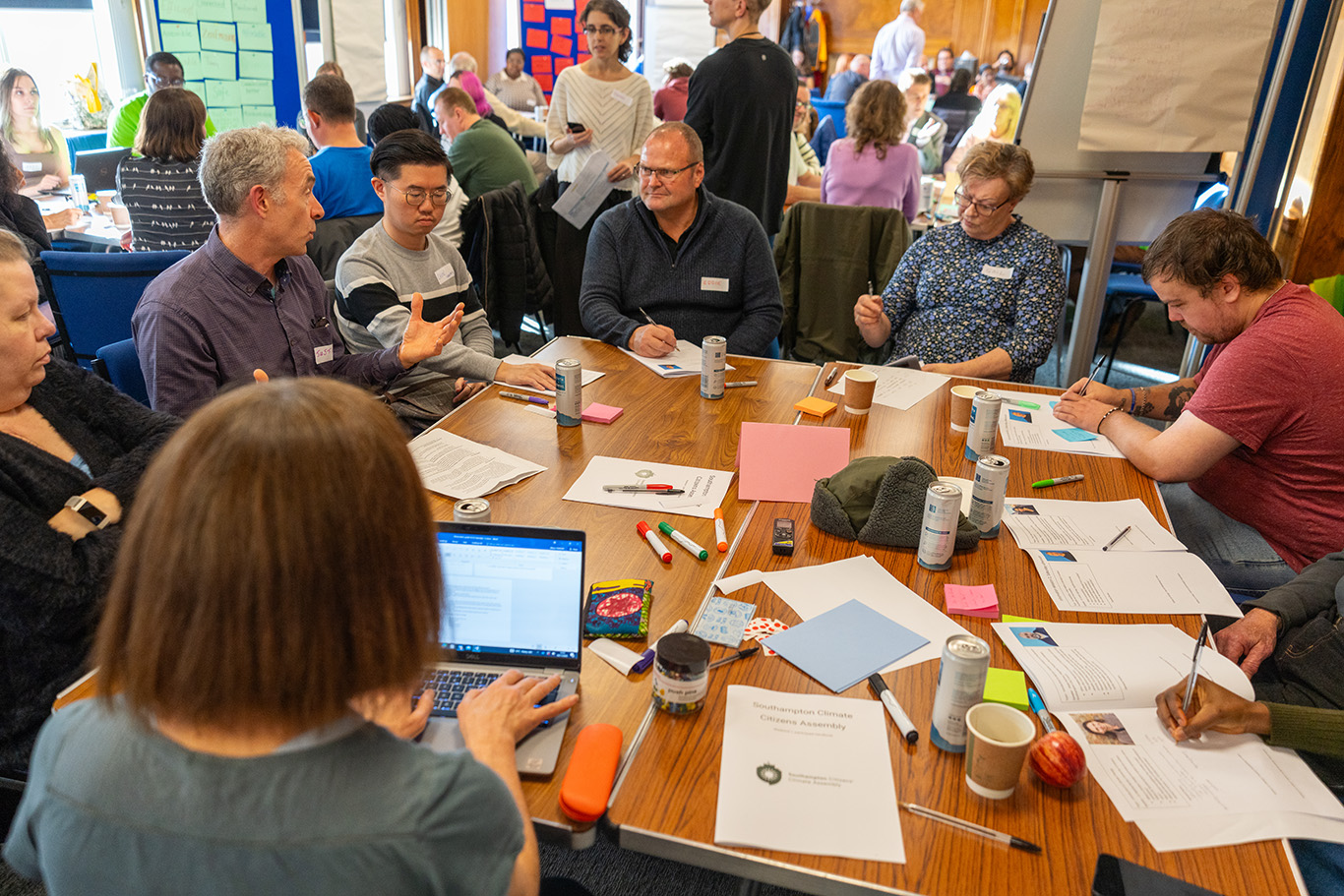
The assembly’s process
Over the spring and summer to winter months in 2023 several initiatives took place across neighbourhoods within the city and online, allowing citizens to learn, deliberate and decide in ways that made sense to them. A diverse group of citizens convened in an assembly in the winter to work with experts to recommend clever solutions to difficult problems which will be implemented and monitored over the coming months and years.
Our aim was to engage a very diverse range of people in the process over the course of the year. The citizens’ climate assembly got underway through a series of Open and Closed meetings targeting different groups across the city. Ideas were shared, experts consulted, with focus on the task of deciding Southampton’s future approaches to climate. In parallel people were be brought together to discuss the outcomes, vote for priorities, and share its findings.
Read more about our timeline.
